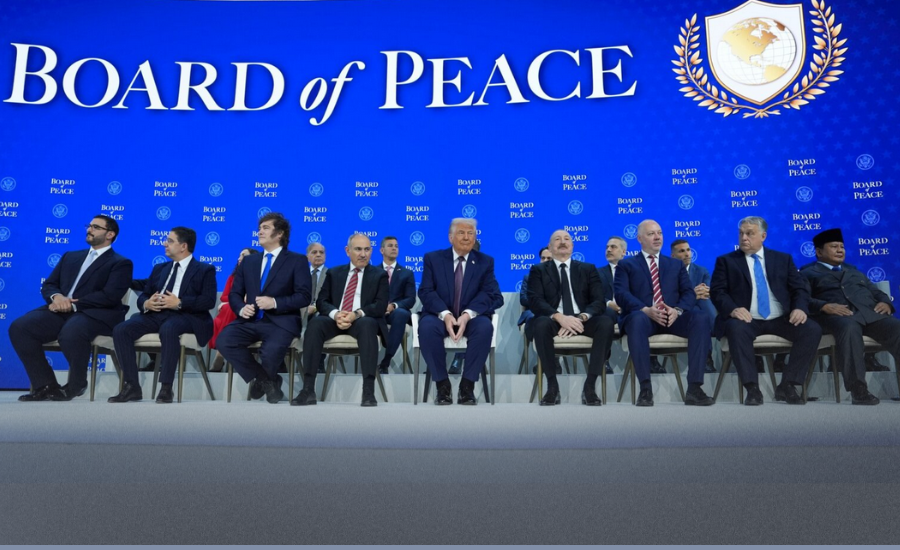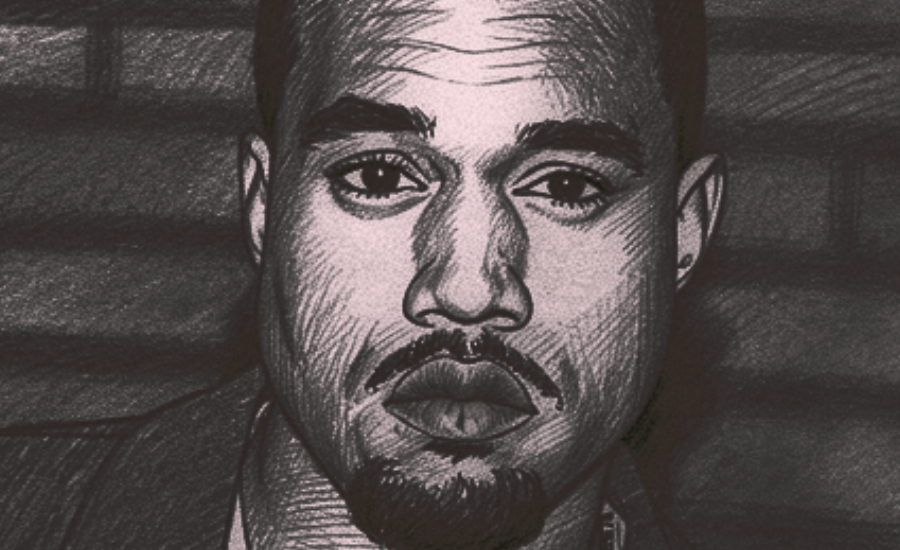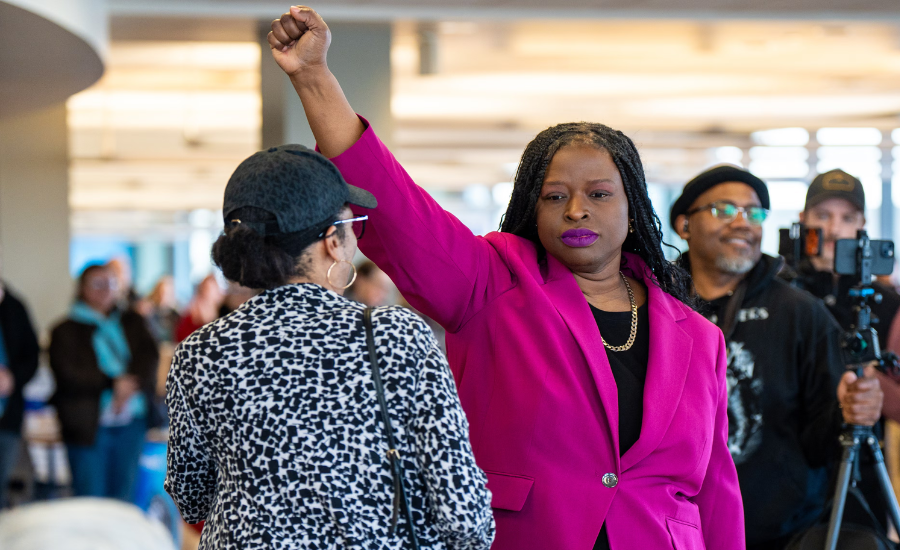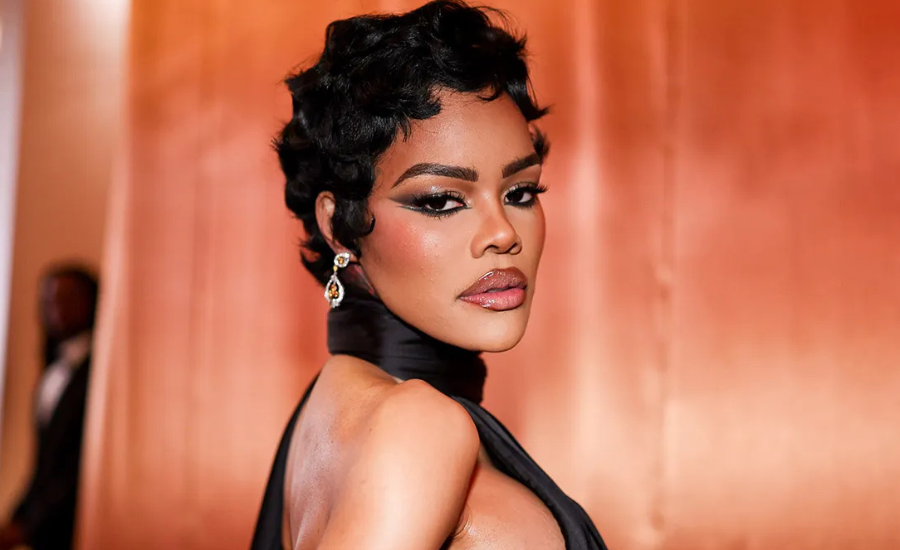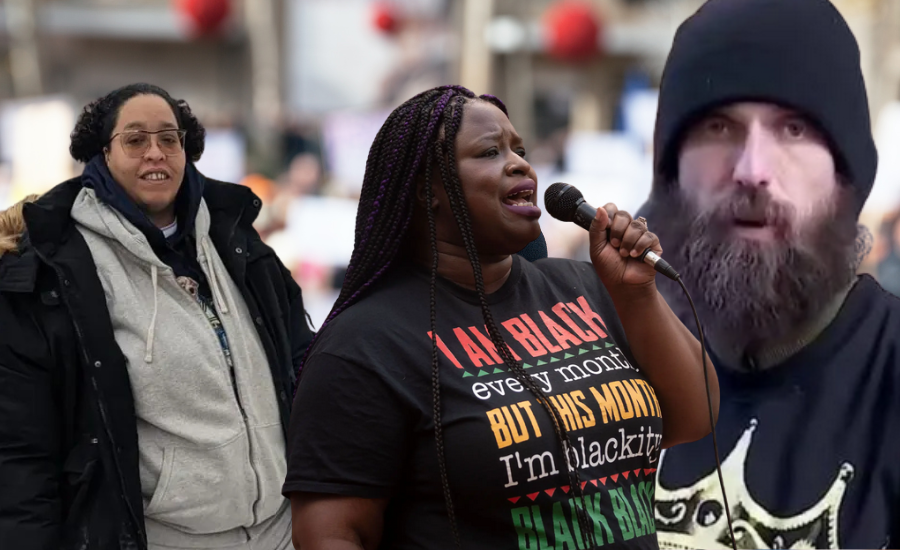GloRilla’s BET Gospel Win Sparks Praise, Debate, and Reflection on Faith in Music
Rapper GloRilla wins BET’s Best Gospel Award for “Rain Down on Me” featuring Kirk Franklin. EEW Magazine’s ‘Gospel Beat’ reflects on the praise, backlash, and conversation about gospel’s future.
Written By EEW Magazine News Editors
Credit: Getty/Michael Tran
LOS ANGELES, CA (EEW NEWSWIRE)— The 2025 BET Awards, held on June 9 at the Peacock Theater, was a celebration of Black excellence, artistry, and culture.
But one win stood out not only for its significance—but also for the controversy it stirred. Memphis-born rapper GloRilla, born Gloria Hallelujah Woods, took home the Dr. Bobby Jones Best Gospel/Inspirational Award for her track “Rain Down on Me”, a collaboration featuring gospel heavyweights Kirk Franklin, Maverick City Music, Kierra Sheard, and Chandler Moore.
Credit: Emma McIntyre/Getty Images
The award marks a milestone for the rising hip-hop star, but not everyone is applauding. The decision to honor a secular rapper in a gospel category has ignited debate across social media and within faith communities. For some, it’s a bold move that reflects the evolving intersection of faith and mainstream music. For others, it’s a signal that the sacred space of gospel music is being diluted.
“Rain Down on Me” appears on Glorious, GloRilla’s studio album released in October 2024.
The project, issued through Collective Music Group and Interscope Records, peaked at No. 5 on the Billboard 200 and earned a 72/100 score on Metacritic. Featuring artists like Megan Thee Stallion, T-Pain, and Muni Long, Glorious was praised for showcasing GloRilla’s versatility.
But it was “Rain Down on Me”, with its spiritual refrain—“Rain down on me, Father God, I won’t use an umbrella”—that captured the attention of the gospel community. The track’s fusion of trap beats and gospel harmonies brought a unique sonic blend to the album.
“I owe it all to God,” GloRilla said in her acceptance speech. “Shout out to Kirk Franklin. I was kind of scared to ask him for a feature on this song because y’all know how I be rapping. When he said yes, I was so excited.”
Her sincerity resonated with fans—but also raised questions.
GloRilla’s spiritual foundation is not an act. Raised in a devout Christian household in Memphis as one of ten siblings, she was homeschooled by her mother until age 10 and immersed in church culture. Only gospel music was allowed in the home. Artists like Yolanda Adams, Smokie Norful, and Kirk Franklin were early influences. As a child, she sang in the gospel choir and often led praise and worship.
“I was socially sheltered,” she told GQ in an interview. “I didn't really know the outside world, other than church and my siblings—so I really didn't know myself.” Once GloRilla finally went to traditional school, she said, “I was around all these other different people and personalities, and I guess it brought me out.”
Credit: Kevin Winter/Getty Images
She once dreamed of becoming a gospel singer. But after losing her voice at age 16 and discovering secular music, her path shifted. Chief Keef and trap beats replaced choir robes and hymnals. Even so, her faith has remained a part of her identity—evident in her birth name, Gloria Hallelujah.
GloRilla’s past hits, like the explicit “F.N.F. (Let’s Go)” and “Tomorrow 2,” stand in stark contrast to the worshipful tone of gospel music. And some saw her win as a slight to more traditional gospel nominees like Yolanda Adams, Tamela Mann, and Pastor Mike Jr.
But GloRilla is not the first mainstream artist to blur the line between gospel and secular music. Artists like Kanye West (Jesus Is King) and Snoop Dogg (Bible of Love and Altar Call) have also combined faith and hip-hop. But with every new crossover, questions arise: What defines gospel music? Who gets to deliver the message?
Kirk Franklin, who features prominently on “Rain Down on Me” and was honored as the BET Icon this year, has long pushed gospel’s boundaries. His involvement gave credibility to the collaboration in some circles. Still, for many traditionalists, the win felt like a departure.
But others argue that gospel’s message can—and should—reach outside the church walls. In a time when culture and faith often feel disconnected, songs like “Rain Down on Me” may bridge the divide.
A Career at the Crossroads
GloRilla’s meteoric rise began with her breakout hit “F.N.F. (Let’s Go)” in 2022. Since then, she has toured with Megan Thee Stallion, released multiple chart-topping tracks, and earned industry recognition—including a Grammy nomination and an iHeartRadio win for Hip-Hop Artist of the Year.
Her BET performance, which included the songs “Let Her Cook” and “Typa” with Keyshia Cole, showcased her range and energy. Yet, it was the gospel award that sparked the most buzz. It forces listeners to consider how faith is expressed in today’s music landscape. While some may question whether her past lyrics fit the mold, others see her as proof that God can use anyone, anywhere—even in mainstream rap—to speak truth.
Whether viewed as controversial or inspired, GloRilla’s journey from the church choir to the BET stage invites reflection on grace, growth, and the ever-changing sound of gospel.
More on EEW Magazine Online:




